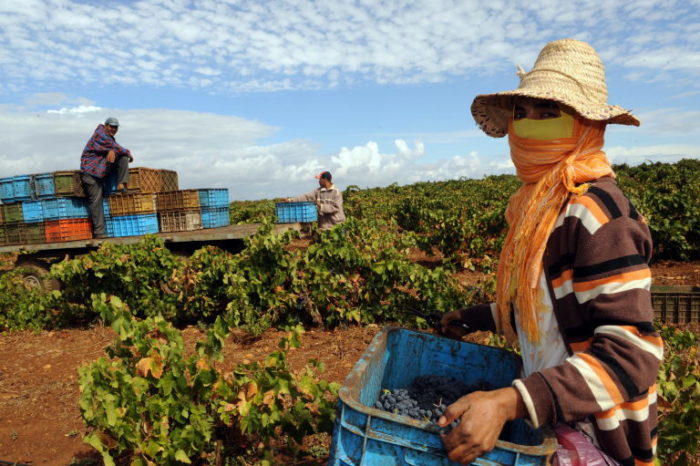The agreement in question aims to encourage the use of solar energy for agricultural pumping systems. This initiative is part of national efforts to achieve sustainable development goals and reduce dependence on fossil fuels.
For Amin Bennouna, PhD in physics and author of one of the three energy scenarios for « Morocco in 2030 »,« large-scale farmers have generally already switched to solar energy« , which is much more profitable for their production volumes and subsequent water use.« This agreement is therefore mainly aimed at small and medium-sized farmers« , he explains.
The objectives of the agreement are manifold. It aims to reduce operating costs for farmers over the long term, by replacing butane gas pumping systems with solar systems.
It also seeks to protect the environment, solar energy being a clean, renewable energy source that will help reduce CO2 emissions and other pollutants, and to promote energy independence by using an abundant, free resource, enabling Morocco to strengthen its energy autonomy, particularly in rural and remote areas.
Who can apply?
The agreement defines several criteria for determining eligible projects. Projects must involve the installation of solar pumping systems for agricultural irrigation, using photovoltaic solar panels to produce the energy needed to operate the pumps. They must also be located in irrigated perimeters recognized by the Ministry of Agriculture, these perimeters being primarily those with significant potential for improving agricultural production through irrigation.
Solar pumping systems must also have adequate capacity to meet the water requirements of irrigated crops, this capacity being assessed on the basis of the irrigated area and the specific needs of the crops.

« Monoculture, on the other hand, is an obstacle to the adoption of solar pumping, » explains Bennouna. « You can’t draw water all year round. If you draw water for half a year with a 30% subsidy, it’s neither sufficient nor profitable. So farmers will have to find other uses for water and diversify their farming activities. »
What about state support?
To encourage the adoption of solar pumping systems, the Moroccan government has introduced several financial support measures. Farmers can benefit from subsidies covering part of the cost of acquiring and installing solar pumping systems, with the amount of the subsidy varying according to the system’s capacity and available resources. These subsidies are set at 30% of the cost of acquisition and installation, with a ceiling of 3,000 dirhams per irrigated hectare and 3,000 per kilowatt-peak installed.
According to Bennouna,« the only way to convince farmers once and for all is to subsidize and finance solar energy« . Financing alone« will cost more because of bank interest. If we subsidize to the point where we can cancel out the interest, that can only increase solar penetration« .
In addition to direct subsidies, the state does offer low-interest loans to finance the purchase and installation of solar pumping systems, with these loans generally offered by partner financial institutions with advantageous terms for farmers.
The government, through its partners such as the Moroccan Agency for Energy Efficiency (AMEE, Agence marocaine pour l’efficacité énergétique), is also providing technical assistance to farmers to help them plan, install and maintain solar pumping systems. This assistance includes training, technical advice and follow-up field visits.
Farmers can also benefit from tax exemptions on solar pumping equipment, reducing the total cost of investment. These measures aim to reduce the financial barriers to the adoption of solar pumping and encourage a transition to more sustainable and economically viable farming practices.
Butane gas vs. solar energy: the State makes its bet
The beginning of the decompensation of gas cylinders has also marked a decisive turning point in Moroccan energy policy. Until recently, butane gas was heavily subsidized by the state, making it economical for households and farmers to use. This subsidy will be gradually lifted until 2026. In the long term, this will encourage farmers to look for more economical and environmentally-friendly alternatives.
However, Bennouna considers that« gas remains more competitive than solar energy« , particularly for « farmers who are always on site » and can therefore « monitor their operations ». But using butane gas for pumping is not without its problems; farmers have to contend with fraud, theft and embezzlement, so« switching to solar may prove more profitable« .
Solar pumping offers several advantages over butane gas pumping. Unlike butane, solar energy is inexhaustible and free once the panels have been installed. Solar systems emit no greenhouse gases during operation, helping to combat climate change.
From an economic point of view, it reduces energy-related expenses for farmers, improving their profitability and financial resilience in the face of fluctuating energy prices. Also, by reducing demand for butane gas, this transition helps ease the burden of public subsidies and frees up financial resources for other strategic investments.
Although the initial investment for solar panels (the purchase of the solar panels, the pump, and related equipment needed to install and operate the system) is higher, operating and maintenance costs are significantly lower than those for butane systems. Farmers will no longer need to rely on gas supplies, which is particularly beneficial in remote areas where access to butane can be difficult.
Written by El Mehdi El Azhary, edited in English by S.E.




